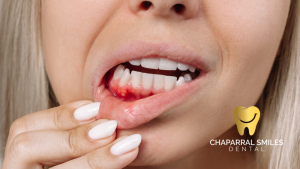There is a tendency to downplay minor tooth pain, but doing so can lead to more serious dental issues down the line. Due to the complexity of your teeth, even a minor ache may be a sign of underlying issues that, if ignored, could get worse.
By addressing minor discomfort promptly, you can prevent more extensive, costly treatments and maintain better overall oral health. Ignoring these signals can lead to infections or tooth loss, so it’s wise to pay attention to your body and seek dental advice when necessary.
Key Takeaways:
- Minor tooth pain can be an early indicator of underlying dental issues that, if left untreated, could escalate into more serious problems.
- Addressing minor tooth pain promptly can help prevent more extensive treatments and associated costs in the future.
- Ignoring tooth pain can lead to complications, such as infections or tooth loss, highlighting the importance of regular dental check-ups.
Understanding Tooth Pain
A minor tooth pain may seem inconsequential, but understanding its root causes can help you prevent more serious dental issues in the future. Tooth pain can serve as a valuable warning sign from your body, indicating that there may be underlying problems that require your attention.
Whether stemming from decay or sensitivity, knowing how to address and analyze your tooth pain can significantly impact your oral health in the long run.
Types of Tooth Pain
- Sharp pain when biting or chewing
- Dull ache that lingers
- Sensitivity to hot or cold
- Throbbing pain that worsens at night
- Pain when pressure is applied
After recognizing the types of tooth pain, you can better communicate your symptoms to your dentist, which will make treatment more effective.
| Type of Pain | Possible Cause |
| Sharp Pain | Cavity or crack |
| Dull Ache | Tooth decay |
| Sensitivity | Gum recession |
| Throbbing Pain | Abscess or infection |
| Pain with Pressure | Root canal issue |
Common Causes of Minor Tooth Pain
Pain can often be attributed to several common issues that you may encounter. Factors such as tooth decay, gum disease, and tooth sensitivity can all lead to discomfort. Sugary foods and poor oral hygiene practices can exacerbate these conditions, leading to pain.
Additionally, grinding your teeth or clenching your jaw can strain your teeth, causing ongoing discomfort.
Common causes of minor tooth pain include cavities, gum inflammation, and dentin hypersensitivity caused by enamel erosion or gum recession. Not addressing these issues can lead to worse pain or complications like dental abscesses.
You should monitor persistent symptoms and consult your dentist, as early intervention can prevent more severe problems from developing later.
“While minor tooth pain can often be managed with home care, persistent discomfort suggests a deeper issue that requires professional evaluation. Early diagnosis and treatment are key to preventing more extensive and costly procedures down the line.” – Dr. Kevin Kalin
Potential Consequences of Ignoring Tooth Pain
Some people might think that minor tooth pain is not a significant issue and choose to ignore it. However, ignoring this discomfort can lead to more critical problems that can impact both your dental health and overall well-being.
You may face serious consequences that could have been easily avoided with timely intervention.
Development of Serious Dental Issues
For many individuals, a minor ache may signal the onset of a more serious issue. If you fail to address minor tooth pain, it could escalate into more serious conditions, such as cavities, infections, or even tooth loss.
Taking early action can save you both pain and expense down the road.
Impact on Overall Health
Along with the risk of serious dental problems, ignoring tooth pain can also have a negative impact on your overall health. Dental issues can contribute to systemic diseases, potentially leading to complications in other areas of the body.
Hence, it is essential to recognize that your oral health is closely linked to your overall well-being. Poor dental health has been associated with systemic health conditions such as heart disease, diabetes, and respiratory infections. While research suggests a correlation, further studies are needed to establish direct causation.
“Maintaining good oral hygiene isn’t just about a bright smile; it’s an investment in your overall health. Emerging research continues to explore the intricate connections between oral health and systemic conditions, reinforcing the importance of prioritizing dental care.” – Dr. Kevin Kalin
When you neglect your tooth pain, you risk exacerbating existing health problems and paving the way for new ones. Prioritizing your dental health means taking precautions to ensure not just a healthy smile, but a healthier you.
When to Seek Professional Help
Your dental health is crucial, and it’s essential to be aware of any changes. If you’re experiencing persistent tooth pain, swelling, or sensitivity that affects your daily life, it’s time to consult a dental professional.
Don’t wait for the pain to escalate into something more severe or expensive to treat, as early intervention can lead to better outcomes.
Signs that Tooth Pain Needs Attention
Seek immediate care if you notice symptoms such as ongoing discomfort, fever, swelling in your face or gums, or difficulty in chewing. These signs often indicate an underlying issue, like an infection or a cavity, that requires prompt professional evaluation.
Taking action sooner rather than later can prevent complications.
Importance of Regular Dental Check-ups
At least twice a year, you should schedule dental check-ups to maintain your oral health. These visits enable your dentist to identify potential problems early on, which can save you time and money in the long run.
Consequently, regular dental check-ups are essential for maintaining your oral health in optimal condition. These visits provide an opportunity for your dentist to identify early signs of decay or gum disease before they become more severe.
Catching these issues early not only helps avoid painful procedures but also lets you conserve your finances by preventing costly treatments later. Additionally, your dentist can offer personalized advice on maintaining good oral hygiene, helping you achieve a healthy and bright smile.
Self-Care Strategies for Minor Tooth Pain
Failing to address minor tooth pain can lead to more serious dental issues over time. Implementing self-care strategies can significantly alleviate discomfort and potentially prevent further complications.
Regular dental check-ups, maintaining good oral hygiene, and using appropriate at-home remedies are all essential components of effectively managing your dental health.
Home Remedies
Along with over-the-counter pain medication, there are simple home remedies you can use to ease minor tooth pain. Rinsing your mouth with warm salt water can help reduce inflammation and eliminate bacteria.
Applying a cold compress to your cheek may help alleviate swelling or inflammation, although it’s not always necessary for minor toothaches without external symptoms.
Pain Management Techniques
Pain management techniques can significantly enhance your comfort when dealing with tooth pain. Utilizing methods such as distraction, relaxation exercises, and controlled breathing can help you cope with discomfort.
You may also want to consider keeping an ice pack near your mouth to numb the area and reduce inflammation. While these strategies are effective, they should not replace professional dental advice.
“While temporary pain relief measures can offer some comfort, it’s crucial to remember they don’t address the underlying cause of your toothache. See your dentist to determine the source of the pain and receive appropriate treatment for long-term relief.” – Dr. Kevin Kalin
However, it’s imperative to exercise caution when employing pain management techniques. While distractions and relaxation may provide temporary relief, they don’t address the underlying issue causing your discomfort.
Failing to visit a dentist can lead to serious complications, including infection or tooth decay. Always prioritize consulting with a professional if your symptoms persist, as they can offer targeted treatment to resolve the root cause of your tooth pain.
Preventive Measures for Dental Health
Now is the perfect time to prioritize your dental health by adopting effective preventive measures. Regular dental check-ups, combined with consistent oral care practices, can significantly reduce the risk of dental issues.
By taking proactive steps today, you can ensure a healthier tomorrow for your teeth and gums.
Proper Oral Hygiene Practices
To maintain optimal dental health, establish a routine that includes brushing your teeth twice a day and flossing daily. By using fluoride toothpaste and a soft-bristled toothbrush, you can effectively remove plaque and prevent cavities.
Don’t forget to replace your toothbrush every three to four months to maintain effective oral hygiene practices.
Dietary Considerations
Proper attention to your diet is imperative for strong teeth and gums. Consuming a balanced diet rich in vitamins and minerals will support your oral health, while limiting sugary snacks and beverages can help prevent tooth decay.
Consequently, limiting sugary foods and drinks is vital for preventing cavities and protecting your enamel. Instead, focus on incorporating plenty of fruits, vegetables, and dairy products that are rich in calcium and vitamin D, both of which are essential for maintaining strong teeth and supporting enamel health.
Additionally, staying hydrated by drinking water throughout the day helps wash away food particles and reduce acidity in your mouth. Making these dietary choices will play an essential role in maintaining your overall dental health.
Frequently Asked Questions
For many people, tooth pain can feel alarming or confusing. Understanding the signs and symptoms associated with tooth pain is imperative for ensuring your dental health.
This section aims to clarify common inquiries and provide you with expert insights to help you navigate any discomfort you may experience.
When is Tooth Pain Considered Serious?
Tooth pain is considered serious when accompanied by persistent swelling, fever, prolonged discomfort, or difficulty swallowing or breathing, as these may indicate a spreading infection. If you notice these symptoms, it may indicate an infection or other complications that require immediate attention from your dentist.
How to Differentiate Between Minor and Major Pain?
After assessing your pain level, it’s essential to determine whether it’s minor or significant. Minor pain typically feels occasional and manageable, while substantial pain can be sharp, constant, and debilitating.
If you find yourself relying on pain relievers frequently or avoiding everyday activities, it may be a signal to consult a dental professional.
For instance, if you experience intermittent discomfort after eating something sweet, this could indicate a minor issue like a cavity. In contrast, severe pain that persists even without trigger factors, or that radiates to your jaw, ear, or head, may signify a serious condition, such as an abscess or nerve damage.
It’s vital to pay attention to these differences and seek dental advice when necessary for your overall health and well-being.
Summing up
Upon reflecting, it’s important not to overlook minor tooth pain, as it often indicates underlying dental issues that could worsen over time if left untreated. Addressing your discomfort early can help prevent more extensive treatments and higher costs in the future.
By listening to your body and seeking professional advice, you are taking proactive steps to maintain your oral health and overall well-being. Prioritize your dental health by scheduling an appointment to prevent minor problems from escalating into major concerns.
Even minor tooth pain can be a sign of something more serious. The earlier you get it checked, the better your chances of avoiding costly and complex treatments down the road. At Chaparral Smiles Dental, we’re here to help you get relief and protect your oral health with compassionate, expert care.
? Contact us today to schedule your appointment—we’re ready to help you smile with confidence again.
Reviewed by: Dr. Kevin Kalin





